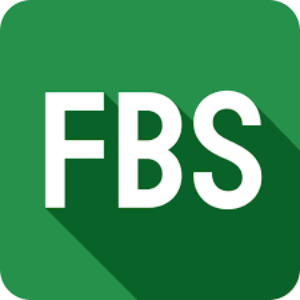
Find the best CFD trading platform and online brokers with our comprehensive guide to CFD trade opportunities in 2024. Whether you’re looking for the best CFD brokers and trading platforms or seeking to understand how to select the best options for your trading needs, this guide will help you navigate the CFD market with confidence.
What Makes a Great CFD Broker?
Before exploring the top CFD brokers, understanding what makes a best broker in the CFD market is crucial. A quality trading platform should offer access to various financial instruments, including commodity, index, and currency pairs trading options. Every broker differs in their trading fees and the range of markets they provide access to.
Key Factors We Considered:
- Regulatory compliance and security
- Trading platform functionality
- Educational resources for beginners
- Customer support quality
- Fee structure and transparency
- Range of tradable assets
- User interface and experience
Top 5 Best CFD Brokers for 2024
1. Interactive Brokers – The All-Around Champion
Best for: Sophisticated traders and long-term investors
Interactive Brokers CFD stands out as a titan among cfd trading brokers, particularly for those seeking institutional-grade trading tools. Their comprehensive platform offers:
- Access to 135+ global markets
- Competitive pricing structure
- Advanced trading algorithms
- Robust research tools
- Strong regulatory oversight
Pros:
- Extensive market access
- Professional-grade trading platform
- Competitive margin rates
- Superior execution speed
Cons:
- Complex platform for beginners
- Higher account minimums
- Steep learning curve
2. eToro – The Social Trading Pioneer
Best for: Beginners and social traders

Among the top CFD brokers, eToro has revolutionized the industry with its social trading features. As one of the most popular online CFD brokers, they offer:
- Copy trading functionality
- User-friendly interface
- Extensive educational resources
- Commission-free stock trading
- Strong presence among UK CFD brokers
Pros:
- Intuitive platform design
- Social trading features
- Excellent for beginners
- Wide range of assets
Cons:
- Limited technical analysis tools
- Higher spreads compared to some competitors
- Not available for US CFD traders
3. Pepperstone – The High-Speed Executor
Best for: Active traders and scalpers
Pepperstone stands out among Australian CFD brokers with its lightning-fast execution and competitive pricing. Their offering includes:
- Ultra-low latency execution
- Choice of trading platforms (MT4, MT5)
- Raw spread accounts
- Outstanding customer support
- Strong regulatory framework
Pros:
- Fast execution speeds
- Competitive pricing
- Multiple platform options
- Excellent customer service
Cons:
- Limited research tools
- Fewer assets compared to larger brokers
- No proprietary trading platform
4. Plus500 – The User-Friendly Option
Best for: New traders seeking simplicity
As one of the best CFD brokers for beginners, Plus500 offers a straightforward approach to trading:
- Clean, intuitive interface
- Guaranteed stop-loss orders
- Negative balance protection
- Mobile-first approach
- Strong regulatory compliance
Pros:
- Easy to use platform
- Built-in risk management tools
- No commission charges
- Free demo account
Cons:
- Limited educational resources
- Basic research tools
- No MT4/MT5 integration
5. IC Markets – The ECN Specialist
Best for: Professional traders seeking tight spreads
Popular among forex CFD brokers and recognized among the largest CFD brokers in the world, IC Markets offers:
- True ECN connectivity
- Ultra-low spreads
- Multiple platform choices
- Extensive tool selection
- Strong presence in Asian markets
Pros:
- Competitive pricing
- Multiple platform options
- Advanced trading tools
- Good for scalping
Cons:
- Complex account types
- Limited non-forex CFDs
- Basic research offerings
How to Choose the Right CFD Broker
Selecting from among the best stock CFD brokers Europe offers or finding top CFD brokers in the world requires careful consideration. Here’s your step-by-step guide:

- Verify Regulation
- Check if they’re regulated CFD brokers
- Look for tier-1 jurisdictions
- Verify segregated client funds
- Assess Trading Costs
- Compare spreads
- Evaluate commission structures
- Consider overnight funding rates
- Evaluate Platform Features
- Test platform stability
- Check available tools
- Assess mobile capabilities
- Review Educational Resources
- Look for comprehensive tutorials
- Check webinar availability
- Assess quality of market analysis
Understanding How CFD Brokers Work
Many traders wonder how CFD brokers make money and operate within the financial markets. Here’s a simple breakdown of the mechanisms that enable CFD brokers to function effectively:
- Spreads: The Primary Revenue Source
CFD brokers typically charge a spread, which is the difference between the bid (buy) price and the ask (sell) price of a financial instrument. This spread is a key source of revenue for brokers. Every time a trader enters a position, they effectively pay this spread, which can vary depending on the asset being traded, market conditions, and the broker’s pricing model. - Overnight Fees: Charges for Holding Positions
Traders who hold positions overnight are subject to swap or rollover fees. These fees are calculated based on the interest rate differentials between the currencies in a forex pair or the cost of funding a leveraged position. This is a significant revenue stream for brokers, particularly from traders who hold long-term positions. - Commissions: Additional Trading Fees
Some brokers, especially those offering tight spreads, may charge a commission per trade. This is often seen in ECN (Electronic Communication Network) or DMA (Direct Market Access) brokers, where traders benefit from lower spreads but pay a fixed fee per lot traded. These commissions can vary depending on the broker and the trading account type. - Market Making: Providing Liquidity
Market-making brokers act as the counterparty to their clients’ trades. Instead of sending trades directly to the underlying market, these brokers fill orders internally, profiting when traders lose or from hedging activities. While this model can raise concerns about potential conflicts of interest, many brokers implement policies to ensure fair trading conditions. - Other Revenue Streams
Beyond the primary sources, CFD brokers may earn from ancillary services such as:- Account maintenance fees: Charged for inactive accounts.
- Data and premium services: Fees for access to advanced trading tools or market insights.
- Deposit/withdrawal charges: Applied to certain payment methods, though many brokers offer free transactions as a competitive advantage.
Understanding these revenue mechanisms helps traders make informed decisions when choosing a broker and ensures transparency in their trading journey.
Special Considerations for Different Regions
For US Traders
While CFD trading is restricted in the USA, some offshore CFD brokers cater to US clients. However, we recommend exploring alternative trading vehicles due to regulatory constraints.
For UK and European Traders
The best CFD brokers UK traders can access offer:
- FCA regulation
- Negative balance protection
- Transparent fee structures
- FSCS protection
For Australian Traders
Australia CFD brokers must meet strict ASIC requirements, including:
- Client money protection
- Regular auditing
- Clear risk disclosures
- Professional indemnity insurance
Risk Management Tips for CFD Trading
Effective risk management is critical for success in CFD trading. While CFDs offer unique opportunities, they also come with significant risks. Here are some essential tips to help traders protect their capital and navigate the markets with confidence:
- Start with a Demo Account
Before committing real money, practice trading on a demo account. This allows you to familiarize yourself with the trading platform, test strategies, and understand market movements without financial risk. It’s an excellent way to gain confidence and experience before transitioning to live trading. - Use Stop-Loss Orders
Stop-loss orders are a vital tool for risk management. They automatically close a trade once the price reaches a predetermined level, limiting potential losses. When setting stop-loss levels, ensure they align with your overall trading strategy and risk tolerance. Consistently using stop-loss orders can help you avoid significant drawdowns. - Understand Leverage Risks
Leverage amplifies both potential gains and losses. While it allows traders to control larger positions with a smaller initial investment, it also increases exposure to market volatility. To mitigate risks, use leverage cautiously and avoid over-leveraging your account. Stick to conservative leverage ratios, especially as a beginner. - Never Invest More Than You Can Afford to Lose
CFD trading involves high risk, and there’s no guarantee of success. Only trade with disposable income that you can afford to lose without impacting your financial stability. This mindset helps you approach trading logically rather than emotionally, which is crucial for long-term success. - Keep Detailed Trading Records
Maintaining a trading journal is a powerful habit for improving your skills and decision-making. Record details of every trade, including entry and exit points, position size, risk/reward ratio, and the reasons behind your decisions. Regularly reviewing your journal can help you identify patterns, refine strategies, and learn from both successes and mistakes. - Diversify Your Trades
Avoid putting all your capital into a single trade or asset class. Diversification helps spread risk across multiple markets, reducing the impact of a single unfavorable trade. Consider trading CFDs on a mix of asset classes, such as forex, stocks, commodities, and indices, to achieve balanced exposure. - Stay Informed About Market Conditions
Market conditions can change rapidly due to economic data, geopolitical events, or unexpected news. Stay updated on relevant market developments and adjust your trading strategies accordingly. Using an economic calendar and following reliable market analysis can help you anticipate potential volatility. - Set Realistic Goals
Unrealistic expectations can lead to impulsive decisions and excessive risk-taking. Set achievable goals based on your experience level and market understanding. Aim for steady, consistent growth rather than trying to make quick profits. - Limit the Use of Emotional Trading
Emotional trading, such as chasing losses or overtrading, can lead to poor decisions and unnecessary risks. Develop a disciplined approach by sticking to your trading plan, taking breaks when needed, and focusing on long-term performance rather than short-term outcomes.
By implementing these risk management strategies, traders can minimize potential losses and create a solid foundation for sustainable success in CFD trading.
Conclusion
Choosing from among the top 10 CFD brokers requires careful consideration of your trading needs, experience level, and risk tolerance. Whether you’re looking at metatrader CFD brokers or considering high leverage CFD brokers, remember that the best platform for you will depend on your individual circumstances.
The best CFD brokers in the world maintain strong regulatory compliance, offer competitive pricing, provide excellent educational resources, and deliver reliable customer support. Whether you’re trading through Singapore CFD brokers or exploring options with Canadian CFD brokers, always prioritize safety, reliability, and alignment with your trading goals.
Remember, successful CFD trading isn’t just about choosing from the best share CFD brokers – it’s about developing a solid trading strategy, understanding the markets, and managing risks effectively. Start your journey with one of our recommended brokers, and don’t forget to take advantage of demo accounts to practice before trading with real money.









